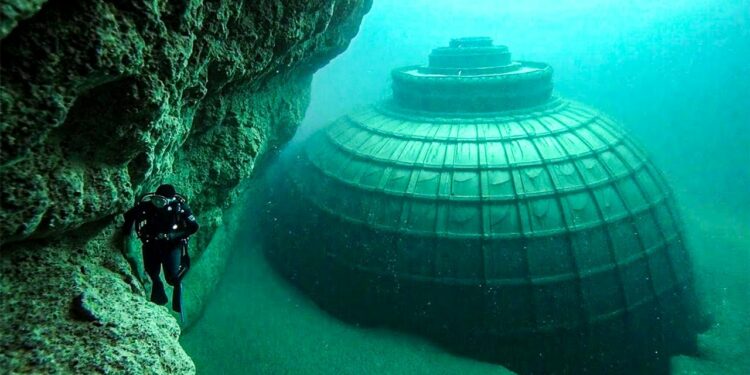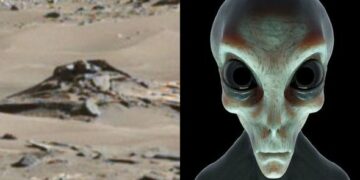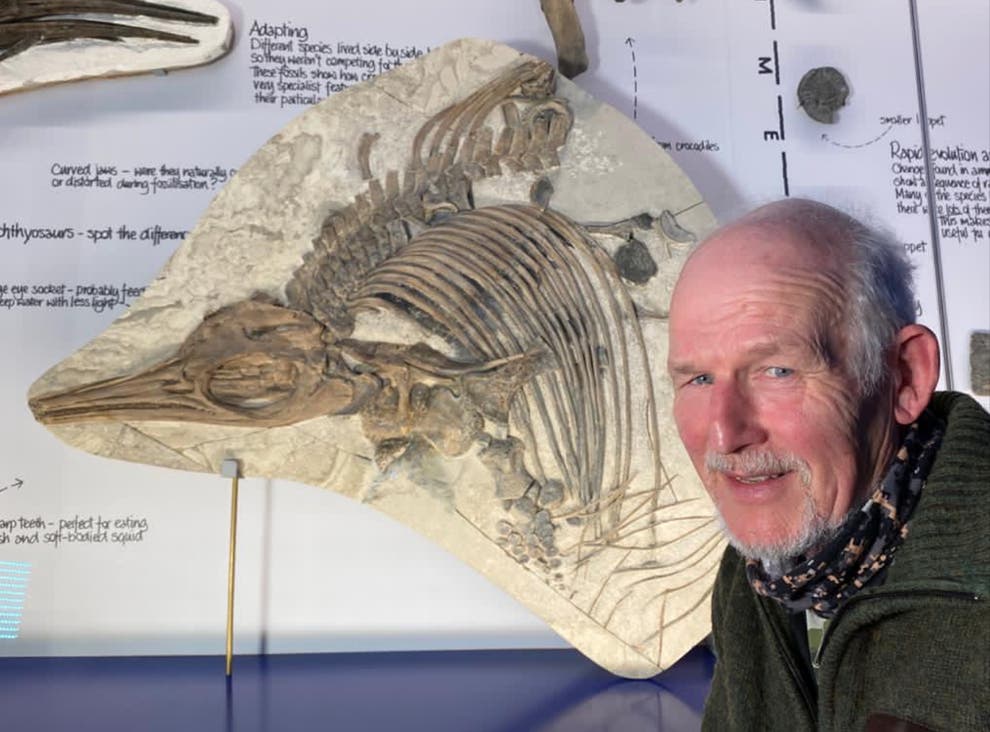We’re sending cameras to depths few humans have ever reached. Prepare to be amazed. The deep ocean isn’t just dark water and odd fish—it’s a realm of ancient cities, creatures thought to be myths, and natural forces that can freeze life instantly. From a chilling “frozen finger of death” to a squid with eyes as big as dinner plates, this is a world of nightmares and wonder. Trust me, you’ll be shocked by what awaits at the end.
20. The Frozen Finger of Death
Ever heard of the “frozen finger of death”? It sounds unreal, but it’s very real. Known as a brinicle, this icy formation can freeze creatures on contact. First observed in the 1960s, it was finally filmed in 2011 near Antarctica. Divers swam under ice, set up heavy cameras, and captured a brinicle—a column of super-salty, freezing brine sinking to the ocean floor, encasing everything in ice. Here’s how it works: when sea ice forms, it releases dense, cold brine that plunges downward, creating an icy tube that freezes starfish and sea urchins on contact. The BBC’s footage revealed this haunting phenomenon. Tabloids called it the “underwater icicle of death,” sparking alien myths, but it’s a natural process. In 2023, scientists from Columbia and Lawrence Livermore built computer models of brinicle growth. Andrew Thurber from Oregon State described them as delicate yet deadly to small sea life—a slow-motion natural trap, rare but mesmerizing.
19. Colossal Squid
On March 9, 2025, scientists aboard the research vessel Falkor 2 sent a robotic submarine, Subastion, 2,000 feet down. Suddenly, its lights caught a tiny 1-meter-long squid—a juvenile colossal squid (Mesonychoteuthis hamiltoni). Until then, only dead specimens had been found, washed ashore or in whale stomachs. Now, it swam freely. Scientists Kat Bolstad and Aaron Evans were ecstatic, with Evans noting the squid’s freaky arm hooks and massive 16-inch eyes, the largest of any animal. This sighting proved these legendary giants roam the deep, unaware of humans, their eyes adapted for spotting prey in total darkness.
18. The Deadly Portuguese Man o’ War (or Not)
In 2020, deep-sea researchers off Western Australia spotted a massive spiral-shaped creature 2,000 feet down. Some called it a Portuguese man o’ war, but they were wrong. It was a siphonophore from the genus Apolemia, a colonial organism made of specialized parts, drifting gracefully in the deep. Unlike surface-dwelling man o’ wars with venomous 100-foot tentacles, this was a distinct, awe-inspiring discovery. Online confusion fueled myths of giant man o’ wars, but experts clarified it was a rare deep-sea relative, reminding us how little we know about ocean life.
17. Japan’s Lost Atlantis
In 1986, diver Kihachiro Aratake found a massive stepped rock formation 82 feet underwater near Yonaguni Island, Japan. Measuring 165 feet long, 80 feet wide, and 82 feet tall, it became known as Japan’s Atlantis. Geologist Masaki Kimura suggested it was over 10,000 years old, possibly built by an ancient civilization when sea levels were lower. Skeptics like Robert Schoch argued it’s natural sandstone shaped by earthquakes. The debate continues: lost civilization or nature’s eerie creation?
16. Headless Chicken Sea Cucumber
The headless chicken sea cucumber (Enypniastes eximia) is one of the ocean’s strangest creatures. Known since 1882 but rarely seen alive until 2017, a deep-sea camera in the Gulf of Mexico captured its glowing, pink, see-through body. In 2018, Australian researchers filmed another near Antarctica, 2 miles deep. Unlike typical sea cucumbers, this one swims with webbed fins, resembling a plucked chicken floating in space. Nicknamed the “Spanish dancer” for its swaying motion, it lives between 1,600 and 20,000 feet deep, a testament to the deep sea’s surprises.
15. Transparent Fish (Leptocephali)
Leptocephali, the transparent larvae of eels, puzzled scientists for decades. Captured in 1904 near the Faroe Islands, they sparked myths of creatures born from rock candy. In 1893, Yves Delage proved they were eel larvae. Studies later confirmed they migrate daily through the water column, living between 100 and 3,000 feet. In 2020, NOAA found rare orange-spotted leptocephali at 5,000 feet, proving these ghostly babies thrive in the ocean’s twilight zone.
14. The Bloop
In 1997, NOAA microphones recorded a thunderous sound in the South Pacific, dubbed the Bloop. Louder than any known animal, it sparked theories of giant squids or even Cthulhu. In 2012, NOAA linked it to icequakes—icebergs cracking near Antarctica. The Bloop shows how the deep sea fuels imagination, with nature’s forces mimicking mythical monsters.
13. Chuuk Lagoon, World War II Fleet
In 1969, Jacques Cousteau filmed Chuuk Lagoon, Micronesia, an eerie underwater graveyard. During WWII’s Operation Hailstone in 1944, the U.S. sank over 40 Japanese ships and 250 aircraft here. Divers have since explored 50+ wrecks—cargo ships, tankers, and warships—now teeming with marine life. In 2018, Project Recover located three American planes, offering closure to families. Myths of cursed ships persist, but Chuuk is a real underwater museum.
12. Thonis-Heracleion
In 2000, archaeologist Franck Goddio rediscovered the Egyptian port city Thonis-Heracleion off Abu Qir, Egypt. Sunk around 100 BC by an earthquake and rising seas, it was known only from ancient texts. Goddio’s team found 70 ships, 5-meter statues, and a granite stele confirming the city’s identity. Only 5% of the site has been explored, hinting at more secrets beneath the silt.
11. MV Derbyshire Wreck
The MV Derbyshire, Britain’s largest merchant ship, vanished in 1980 during Typhoon Orchid. In 1994, explorer David Mearns found it 14,000 feet deep off Okinawa. Over 2,500 artifacts revealed structural failure from massive waves. An inquiry in 2000 ruled out sabotage, confirming natural causes. The tragedy led to 22 safety reforms for bulk carriers.
10. Barrel Fish
Known since 1939 but only filmed alive in 2004, the barrel fish has a transparent head and tubular eyes. Spotted 2,000 feet down off Monterey Bay, its green eyes rotate to spot prey. Only seen nine times in 5,000 dives, this elusive fish steals food from siphonophores, proving reality is stranger than fiction.
9. Bigfin Squid
In September 2024, cameras in the Tonga Trench captured a bigfin squid “walking” 11,000 feet down. Its 13-foot tentacles touched the seafloor like legs, a slow, graceful motion. Previously seen only in grainy footage, this clear video revealed their behavior in the ocean’s darkest depths.
8. Atlit-Yam
In 1984, archaeologist Ehud Galili found Atlit-Yam, a 6,900–6,300 BCE Neolithic village off Israel. Divers uncovered homes, a well, megaliths, and 90 graves with signs of tuberculosis and diving injuries. A tsunami likely wiped it out, earning it the nickname Israel’s Atlantis.
7. Gulf of Mexico Shipwreck
In 2011, Shell Oil spotted an 84×26-foot wreck 4,363 feet deep. NOAA’s Okeanos Explorer found a copper-sheathed ship with cannons, a stove, and muskets, likely from the War of 1812. Its preservation in deep sediment made it a time capsule.
6. Solomon Islands Cathedral Coral
In October 2024, National Geographic found a 112-foot-long, 300–500-year-old coral (Pavona clavus) off Malo Island. Made of 1 billion polyps, this living organism stunned divers, a reminder of nature’s enduring wonders.
5. Whale Shark Carcass
A decade ago, a whale shark carcass sank 1,000 meters, attracting eel pouts but not bone-eating worms. This rare event showed how even giant sharks fuel deep-sea ecosystems, debunking monster myths.
4. Shi Cheng (Lion City)
Flooded in 1959 by China’s Xin’an River Dam, Shi Cheng, a 621 AD Tang Dynasty city, was rediscovered in 2001 under Qiandao Lake. Its walls, carvings, and wooden beams were perfectly preserved, a real “China’s Atlantis.”
3. Box Jellyfish
In 2015, Australian researchers found 64 Chironex box jellyfish 39–56 meters deep, hunting near reefs. Known as the world’s most venomous animal, their deep-sea presence redefined their range, making encounters less predictable.
2. Deep-Sea Anglerfish
In 2014, MBARI filmed a black sea devil anglerfish 600 meters down, its glowing lure and wide jaws on display. Another species, Chaenophryne, was seen “walking” at 2,600 meters. These hunters, adapted for darkness, debunked alien myths with their eerie reality.
1. Lost City Hydrothermal Field
In 2000, scientists found the Lost City on the Mid-Atlantic Ridge—30 carbonate chimneys, some 60 meters tall, spewing alkaline fluids for 120,000 years. Powered by serpentinization, it hosts methane-producing archaea and bizarre creatures. Not Atlantis, but a clue to life’s origins.
What’s still hiding beneath the waves? Lost cities, unimagined creatures, or unexplained forces? We’ve only scratched the surface. Which discovery shocked you most?





















